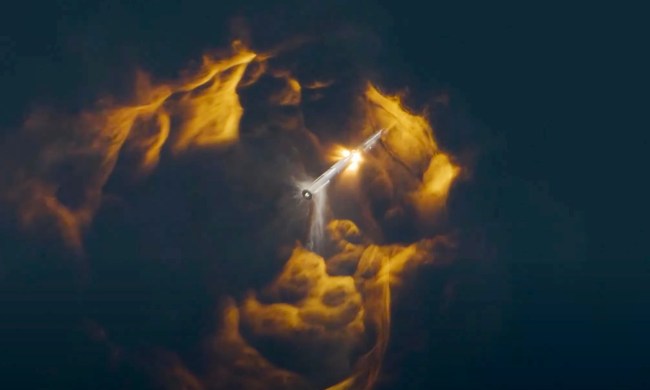UPDATE: Strong winds have caused Rocket Lab to delay the launch. It’s now out of the launch window for 2022 and so will make another attempt to begin the mission in early 2023.
Rocket Lab is about to perform its first-ever launch from U.S. soil in what will be a major step forward for the 16-year-old spaceflight company.
The upcoming mission follows 31 satellite-deployment flights from Rocket Lab’s launch facility in New Zealand since 2018, with the move to the U.S. marking a significant expansion of its business.
The Virginia is for Launch Lovers mission is currently scheduled for Sunday, December 18, and will see Rocket Lab using its workhorse Electron rocket to deploy six satellites for radio frequency geospatial analytics provider HawkEye 360.
The Electron will depart Launch Complex 2 at Virginia Space’s Mid-Atlantic Regional Spaceport within NASA’s Wallops Flight Facility about 100 miles southeast of Washington, D.C.
This launch has been delayed several times due to administrative issues with the FAA and poor weather conditions, but an update shared by the company on Sunday was positive about the launch going ahead today.
Rocket Lab says that with its second launch facility it can now support more than 130 missions every year for government and commercial satellite operators, enabling it to better compete with the likes of SpaceX.
The company, founded by New Zealander Peter Beck, will use the same U.S. launch location for its next-generation and much more powerful Neutron rocket, which is currently under development. Fellow launch operator Northrop Grumman also uses the facility to launch its Antares rocket for Cygnus supply missions to the International Space Station.
How to watch the launch
Rocket Lab will launch its first U.S. mission from its facility at Virginia Space’s Mid-Atlantic Regional Spaceport within NASA’s Wallops Flight Facility.
The launch will be livestreamed by Rocket Lab, and you can watch the stream either by heading to Rocket Lab’s YouTube page for the event or by using the video embedded near the top of this page.
Coverage begins at 5:20 p.m. ET (2:20 p.m. PT), with the launch window opening at 6 p.m. ET (3 p.m. PT) on Sunday, December 18. Liftoff could be at any point within a two-hour window.
The mission has already been delayed by poor weather conditions, so be sure to check Rocket Lab’s Twitter account for the very latest information regarding the launch.


